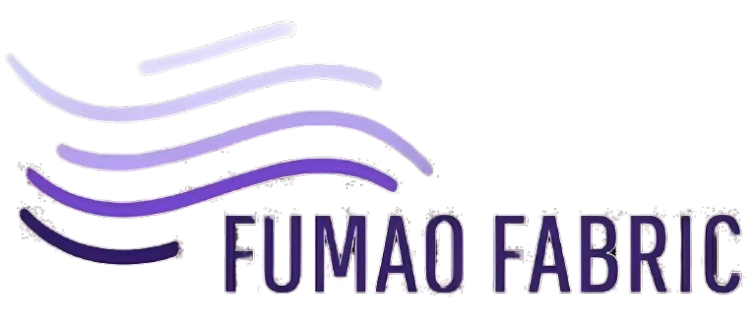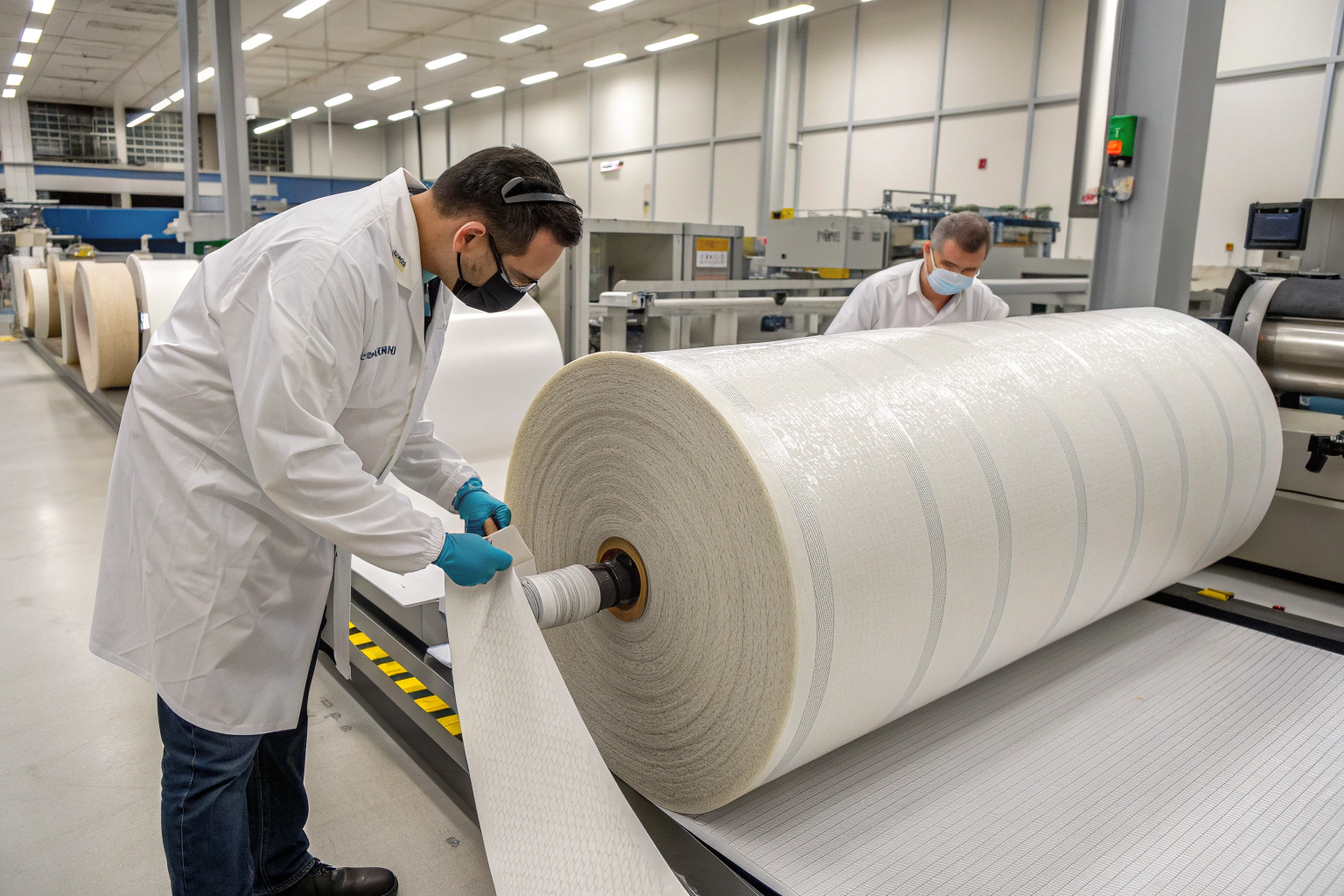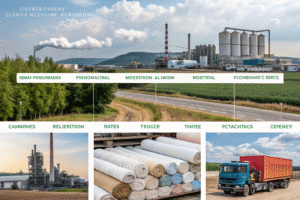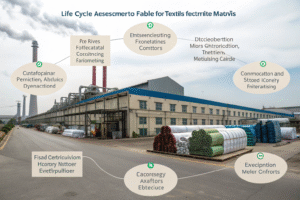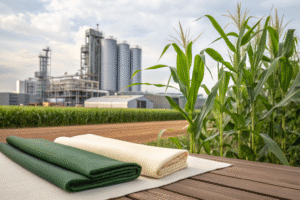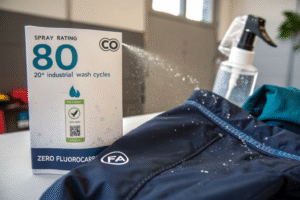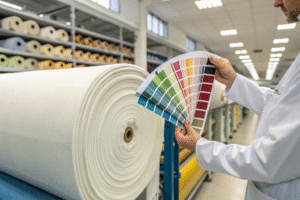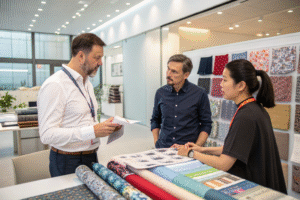Many procurement managers and technical buyers face the same challenge: they need authentic NBC fabrics that comply with MIL-DTL-32102E, but reliable sources are hard to locate. The search often leads to incomplete data, outdated standards, or suppliers without the required military-grade capacity. This increases risk, delays projects, and raises costs.
In reality, MIL-DTL-32102E fabrics are accessible, but only through specific official databases, qualified textile manufacturers, and certified distributors who understand strict defense specifications. Knowing where to search saves time, prevents compliance issues, and ensures the right protective performance.
If your goal is sourcing for protective clothing, defense-related contracts, or advanced industrial applications, here is a structured guide on where to find, verify, and purchase these specialized fabrics.
How to Access the Official MIL-DTL-32102E Specification?
Without the official document, buyers cannot confirm whether a material meets NBC protection requirements. This lack of clarity often leads to poor purchasing choices and failed quality checks.
The verified MIL-DTL-32102E specification is published through the Defense Logistics Agency’s ASSIST system and licensed standards distributors. These documents explain test methods, material structure, and compliance criteria in detail.
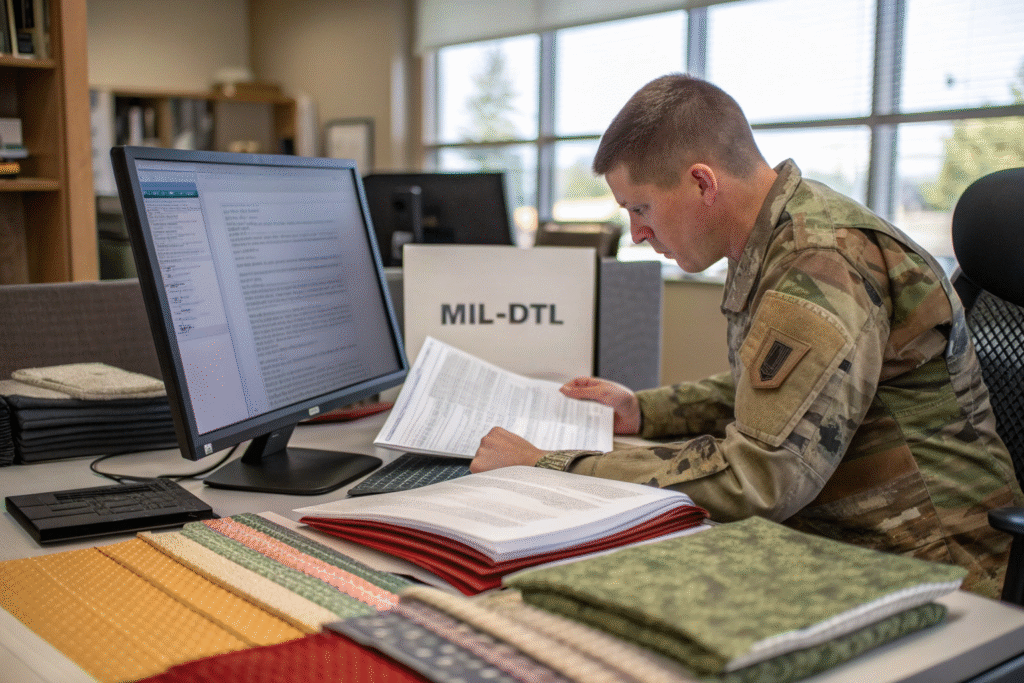
This is the essential first step before contacting any supplier. With the document in hand, buyers and engineers can ensure every purchase aligns with U.S. Department of Defense requirements.
Where can I download the specification?
The DLA ASSIST database is the most reliable source: ASSIST official site. Alternatively, resellers like Standards Supply provide direct PDF downloads. For version history and verification, GlobalSpec is also useful.
Why is the document critical for sourcing?
Suppliers may claim compliance without evidence. Having the specification allows you to cross-check their test reports against the official criteria. This step prevents costly mistakes and ensures credibility in defense-related projects.
Which Fabric Suppliers Provide NBC Materials?
After securing the standard, the next issue is finding qualified textile suppliers. Not all mills produce NBC-rated fabrics, and many restrict sales to government or prime contractors. This reduces visibility and options for smaller buyers.
However, several specialized textile companies offer military-grade fabrics and can produce NBC-compliant materials on request. They usually focus on coated fabrics, laminations, and woven structures engineered for protective gear.
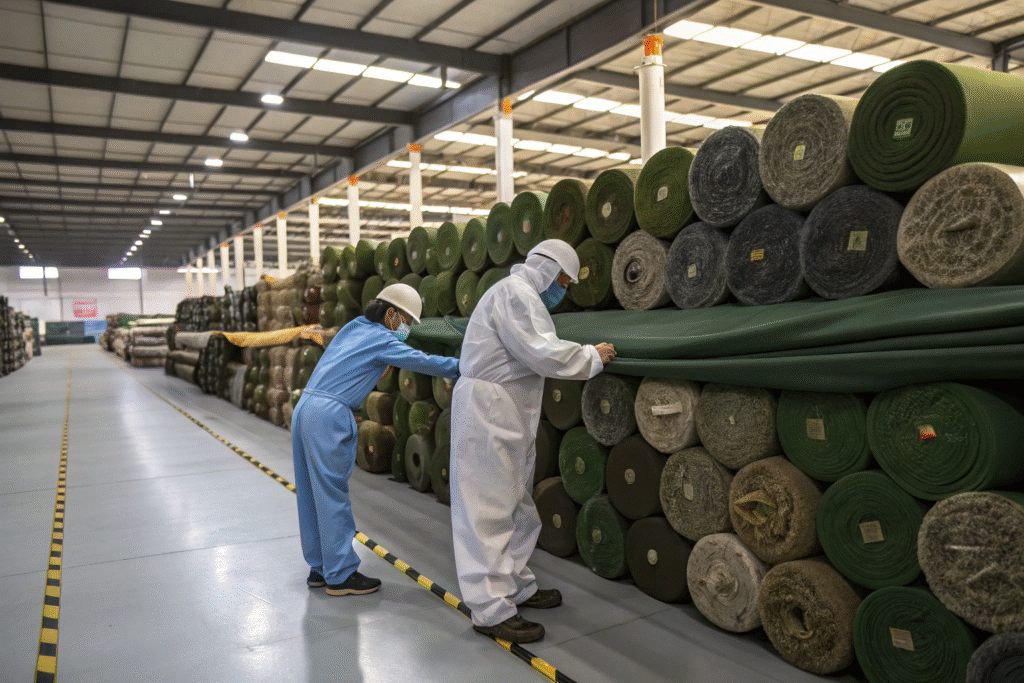
These suppliers have long-standing relationships with defense procurement and understand compliance reporting. This makes them valuable partners for contractors and industrial buyers.
Which suppliers are reliable?
Key suppliers include MMI Textiles, known for tactical and military-grade fabrics; HLC Industries, offering Berry Amendment-compliant textiles; Performance Textiles, specializing in engineered fabrics; and Snyder Manufacturing, which provides coated military applications.
Can suppliers customize to MIL-DTL-32102E?
Yes. Most allow tailored development with coatings, laminates, or camouflage patterns. This is useful for NATO or UN projects, as well as industrial customers who require NBC-level protection. Working directly with mills ensures stronger control and avoids middlemen.
Are There Stock Numbers (NSNs) for NBC Fabrics?
Some defense buyers prefer to work with National Stock Numbers (NSNs), which simplify logistics and supply chain management. However, NBC fabrics are often cataloged under garment NSNs, making direct fabric sourcing less transparent.
Several NSNs are linked to MIL-DTL-32102, covering chemical protective trousers and jackets. These references help buyers locate approved distributors and trace fabric origins.
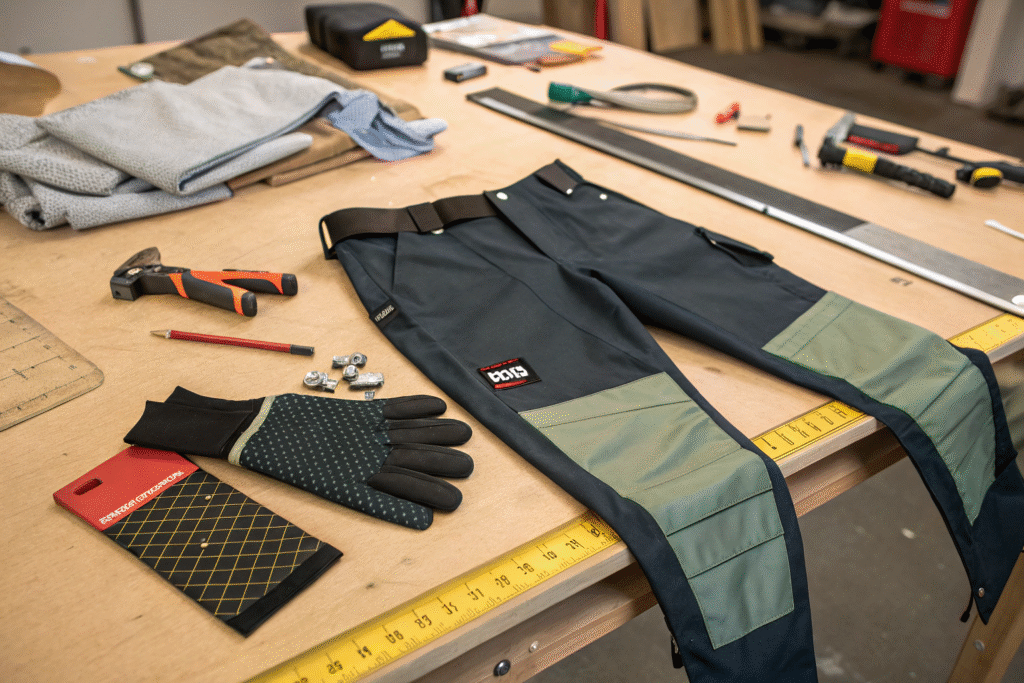
NSNs provide official traceability, ensuring that the product meets the intended military specification.
What are examples of related NSNs?
Examples include NSN 8415-01-517-4385, a chemical-resistant trouser for training, and NSN 8415-01-444-1435, which refers to chemical protective trousers.
How do NSNs support sourcing?
NSNs act as a procurement key. Even if you cannot order raw fabric directly, they guide you to the original manufacturers and distribution channels. This indirect route is often effective in restricted supply chains.
What Should Buyers Consider Before Placing an Order?
Even with suppliers identified, many buyers face delays because they do not prepare the required certifications, test reports, and export logistics. NBC fabrics are subject to strict verification and handling rules.
To avoid issues, buyers must request accredited test results, confirm compliance with SGS or ITS reports, and ensure suppliers can manage international logistics for restricted materials.
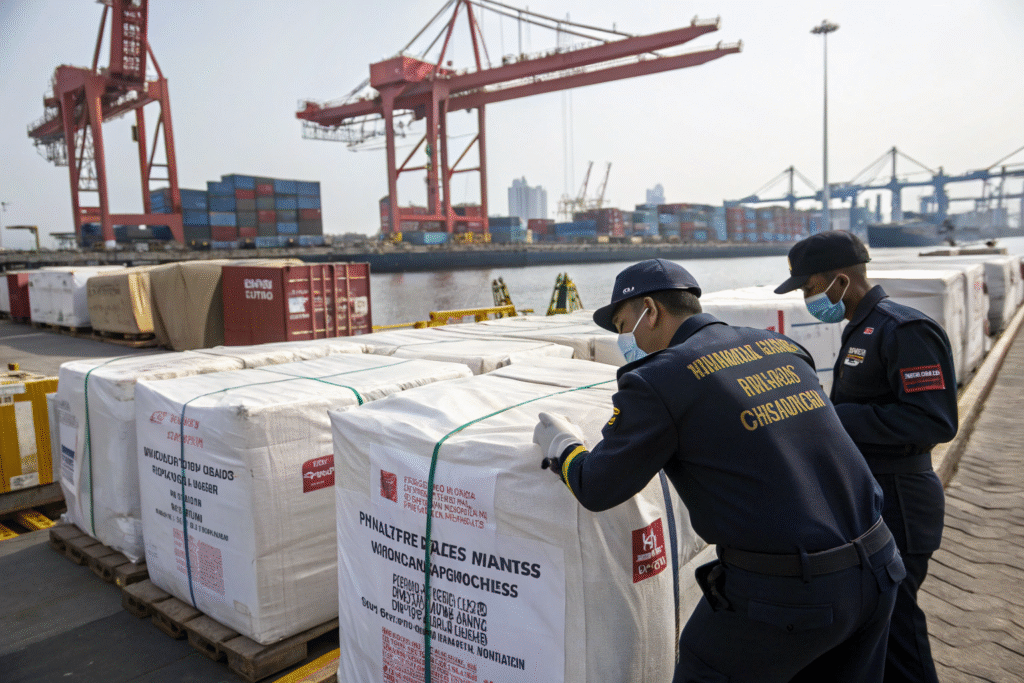
This preparation reduces the risk of customs rejection and ensures smooth delivery to end users.
Which documents are necessary?
Suppliers should provide CNAS-accredited test reports and independent verification from organizations like SGS or Intertek. Request QR-coded quality data for full transparency.
How can logistics risks be minimized?
Experienced suppliers usually have bonded warehouses and customs clearance teams. Buyers should confirm tariff handling, container schedules, and packaging compliance before shipment. This is particularly important for exports to the U.S. and Europe, where import restrictions are strict.
Conclusion
Finding MIL-DTL-32102E NBC fabrics is not simple, but it is possible with the right approach. By accessing official specifications, contacting specialized textile suppliers, checking NSN references, and preparing compliance documents, buyers can secure authentic protective fabrics with confidence.
If you are ready to source your own NBC or technical fabrics, we at Shanghai Fumao can help. We have decades of experience in fabric manufacturing and export, with the capacity to co-develop protective and functional textiles. Please contact our Business Director Elaine at elaine@fumaoclothing.com to begin your order today.
